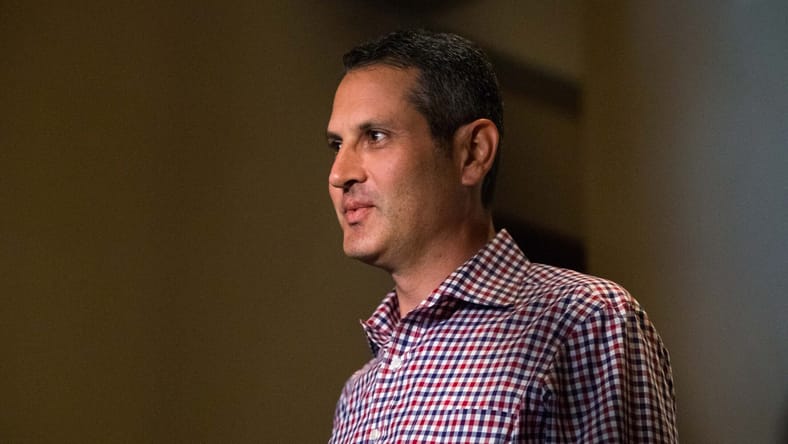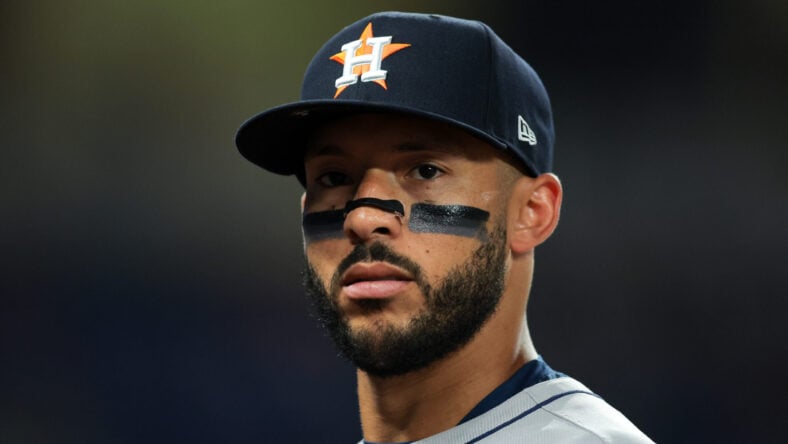Former GM Admits MN Twins Can’t Keep Top Tier Talent

When the Minnesota Twins went into the 2025 Major League Baseball trade deadline as sellers, there was a set line of reported thinking. Their six impending free agents seemed as good as gone.
Controllable assets, however, were supposed to be so expensive that inquiring teams were expected to struggle meeting president Derek Falvey’s asking prices. After dominos started to fall, and Carlos Correa accepted a trade to Houston, all bets were off.
Falvey put up the “For Sale” sign outside Target Field and Twins 26-man talent started selling like hotcakes at Sunday breakfast. By the time it was over, Minnesota traded Correa, Paddack, Willi Castro and most of the bullpen, including back end relievers under contract through 2028 or longer, in Jhoan Duran, Griffin Jax and Louie Varland.

Over the weekend on his newly launched podcast “Rosters to Rings“, former Minnesota Twins general manager Thad Levine — whose contract was not renewed last offseason — sat down with ESPN MLB insider Jeff Passan.
There, he shed more light on what led to Correa being dealt and just how difficult roster building can be for a mid-market MLB franchise trying to be profitable while carrying big market salaries, like Correa’s.
Thad Levine reflects on Carlos Correa’s time with MN Twins
Mostly, Levine believes Correa’s edition did more for the long-term success of the Minnesota Twins than those on the outside realize. The former MVP candidate and World Series champion helped Falvey and the Pohlads upgrade everything from coaching approach, to analytics, to player diet.
“Before the signing of Carlos Correa, I think the Minnesota fan base conceded that they just were never going to access that top tier of free agents. So they were eligible to consider the second tier on down. I think the signing of Carlos Correa, and the Pohlad family endorsing that signing, was such a watershed moment for the franchise that allowed them to understand they were worthy of accessing the best players on the market.
Secondarily, I think Carlos, before he even set foot on the field and made an impact, which he ultimately did do, he raised the standards of excellence for the franchise, which I think they’re going to feel for decades to come. They really modernized their advanced scouting, some of their coaching techniques from their strategic planning techniques. Heck, even the food service, was, was revolutionized by him.
Thad Levine – Roster to Rings
Related: MN Twins Officially Activate Byron Buxton
There’s a lot to unpack from the direct input given by a general manager that had a hand in this whole process. Of course Levine didn’t make the decision to trade Correa, but he helped to sign him, twice.
The perceived reality that Minnesota is not a championship environment franchise, and that his compensation takes up too much of the payroll, are self-inflicted wounds from the ownership level on down.
Levine, talking with former Texas Rangers general manager Jon Daniels as his cohost, noted the San Diego Padres as a franchise that went from a revenue sharing recipient to a contributor. It is by intention that these changes take shape.
Minnesota Twins bit off more than they could chew with Correa signing
It’s not as though Carlos Correa joined the Twins thinking that he would be the only piece. The Houston Astros showed him how a winning franchise supplements a roster when they have superstar talent ready to compete.
In Minnesota, Correa wound up in a similar position to what the same ownership group did with Joe Mauer before him. The Pohlad’s paid Mauer $184 million and then said that was enough. Nothing was done to support their very expensive superstar, essentially nullifying his signing, from a roster-building standpoint.
Now, to your point though, once it is clear that they’re not necessarily in a win now cycle. You really can’t afford to then continue to carry a player like that because he just represents too large of a percentage of your payroll. If the revenues aren’t there to continue to support building championship players around him, it really is tantamount to the success of that team then to move on from that, from that type of player. Whereas a team like the Yankees, with a bigger payroll may be able to hold on to that player for a longer period of time. Without risk, the Minnesota Twins needed to move him on.
So as much as he was a positive contributor for that franchise for the period of time he was here, I think it was very important that they traded him at the deadline. He’s a much better fit for Houston, who is continuing to try to win a championship at this stage in their development. He’s a championship environment player. He’s going to perform better for them than he probably will for the, the Twins right now, especially as the Twins embark upon a little bit of a rebuild.”
Thad Levine – Roster to Rings
Related: Insider Compares MN Twins Rookie to MVP Candidate
Minnesota is only not a championship environment, worthy of championship caliber talent, because they have succumbed to being second-rate roster creators. Trading Correa may have been necessary due to his drastic production dropoff (.267/.319/.386 92 OPS+), but it never should have been the result of roster building or a salary dump.
More About: Minnesota Twins
